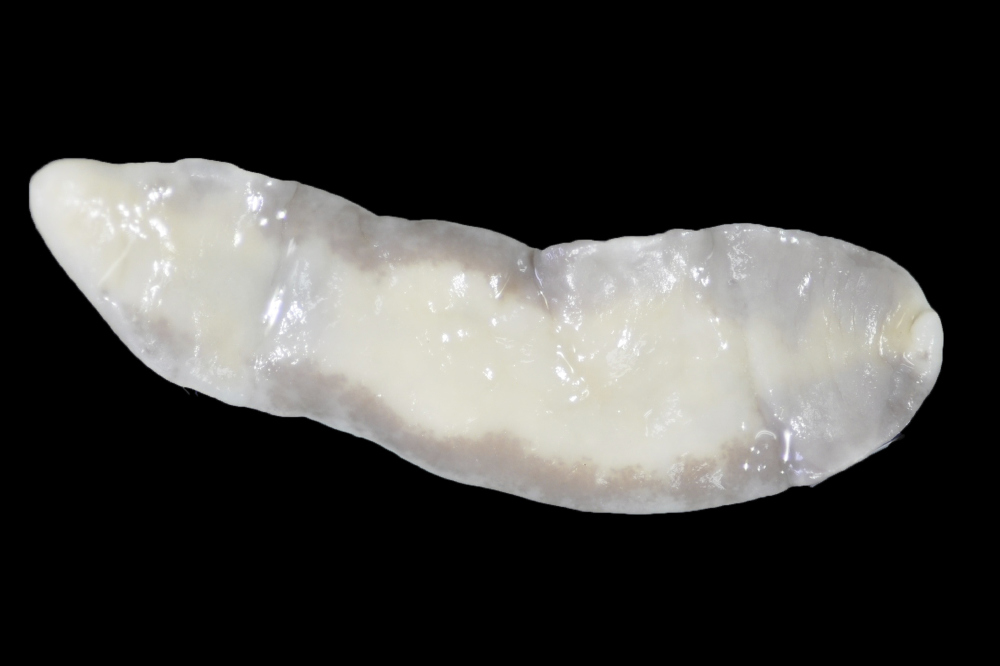
A parasite not unlike this was found!
A 50 year old British man found he had a parasitic worm in his brain for four years after he went to hospital complaining of a bad headache.
The man went to Addenbrooke’s Hospital in Cambridge for the first time in 2008 after suffering from bad headaches, seizures and memory loss.
He also said his smell had altered; he had experienced memory flashbacks and pain running up and down his right side.
Doctors struggled to diagnose him- he did have lesions on his brain found through MRI scans, however, he was also tested for HIV, tuberculosis, lime disease and syphilis which all came back negative.
The 1 cm long worm was found four years later by Scientists at St Thomas’ Hospital in London took a biopsy of his brain.
When the surgeons finally extracted the parasite, they realised that it has travelled 5cm to the right side of his brain and its eggs had become tangled in his brain matter.
The small tapeworm, Spirometra erinaceieuropaei, was identified by a team of scientists led by Dr Hayley Bennett, from the Wellcome Trust Sanger Institute. They revealed that cases like this have only been reported 300 times over the last 60 years. It is mostly found in South East Asia, China and Japan.
This particular worm has never been found in the UK before, but can be caught after eating infected food or in a Chinese medical aid for sore eyes which has ingredients including raw frog.
Other foods such as crustaceans from lakes, raw meat from reptiles and amphibians also put you at greater risk.
The victim had a Chinese background- had lived in the UK for 20 years but had also visited China regularly during that time.
Writing in the Genome Biology journal, Dr Effrossyni Gkrania-Klotsas, study author from the department of infectious disease at Addenbrooke’s Hospital in Cambridge, said: ‘We did not expect to see an infection of this kind in the UK, but global travel means that unfamiliar parasites do sometimes appear.’
By investigating the worm more closely, scientists believe they can generate new treatments to prevent such cases.
Source: Metro

